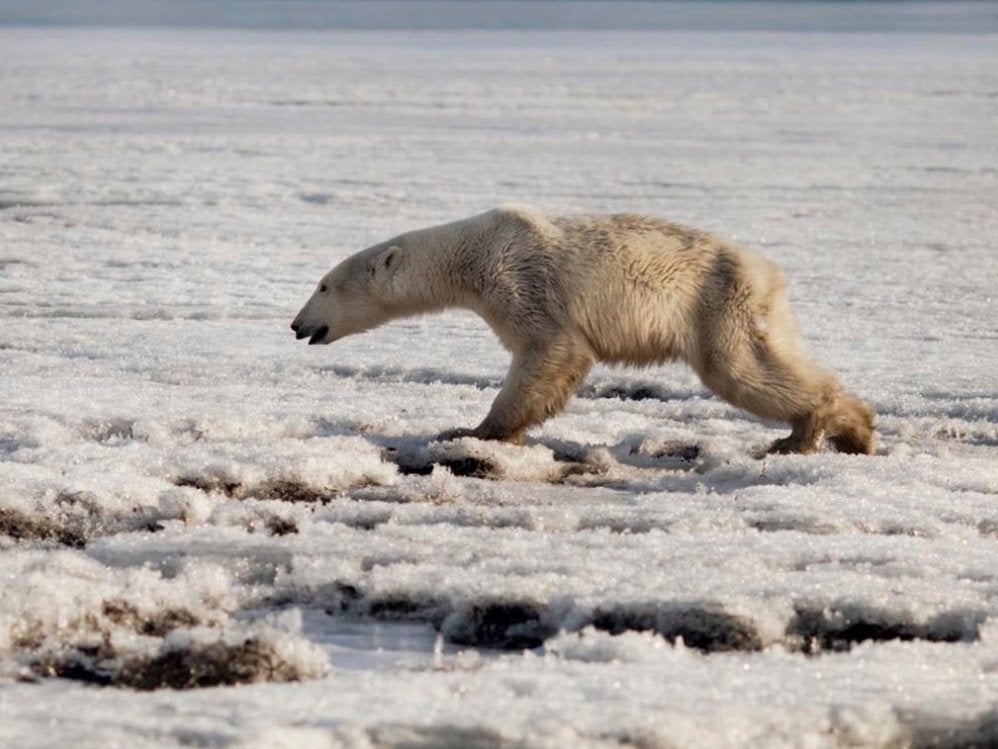Polar bear found lost in Russian village hundreds of miles from home
Rescuers plan to put animal to sleep with sedative and then airlift it home by helicopter

An “exhausted-looking” polar bear has been spotted scavenging for food hundreds of miles from its home.
Concerned residents in the village of Tilichiki on the Kamchatka peninsula, in Russia’s far east, were shocked to see the animal, which is thought to have travelled about 434 miles south from its usual habitat in Chukotka.
Environmentalists said the bear could have lost its sense of direction while drifting on an ice floe.
Vladimir Chuprov, from Greenpeace, said: “Due to climate change, the Arctic is getting warmer [and the] hunting environment [is getting] smaller and less convenient.
“The ice is receding, and polar bears [are looking] for new ways to survive and the easiest way is coming to people.”
Locals made the bear feel welcome by giving it fish, Russian media reported.
Videos posted online showed the animal moving past residents, showing no aggression.

Authorities in Kamchatka are preparing a rescue effort later this week.
They plan to use a sedative to put the bear to sleep and then airlift it to Chukotka in a helicopter.
Polar bears’ dependence on sea ice makes them highly vulnerable to global warming.
Shrinking Arctic ice cover could increasingly deprive them of their usual prey, seals.
Associated Press contributed to this report
Join our commenting forum
Join thought-provoking conversations, follow other Independent readers and see their replies
Comments
Bookmark popover
Removed from bookmarks